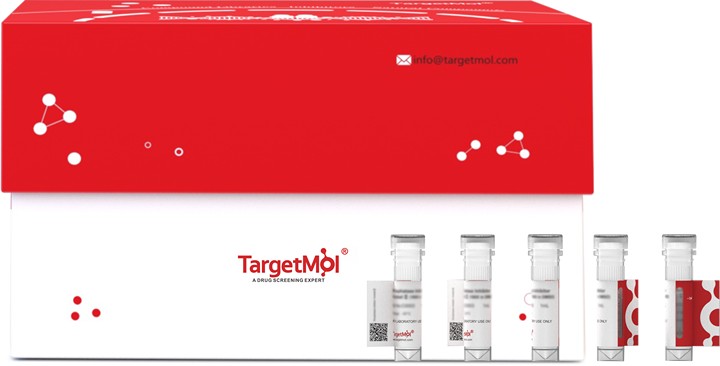Shopping Cart
Remove All Your shopping cart is currently empty
Your shopping cart is currently empty
MIP-1 alpha/CCL3 Protein, Mouse, Recombinant (HEK293) is expressed in HEK293 Cells. The accession number is Q5QNW0.

| Pack Size | Price | USA Warehouse | Global Warehouse | Quantity |
|---|---|---|---|---|
| 5 μg | $113 | - | In Stock | |
| 10 μg | $143 | - | In Stock | |
| 25 μg | $198 | 7-10 days | 7-10 days |
| Biological Activity | The EC 50 value of mouse MIP-1α/CCL3 on Ca 2+ mobilization assay in CHO-K1/Gα15/mCCR1 cells (human Gα15 and mouse CCR1 stably expressed in CHO-K1 cells) is less than 100.0 ng/ml. |
| Description | MIP-1 alpha/CCL3 Protein, Mouse, Recombinant (HEK293) is expressed in HEK293 Cells. The accession number is Q5QNW0. |
| Species | Mouse |
| Expression System | HEK293 Cells |
| Tag | Tag Free |
| Accession Number | Q5QNW0 |
| Synonyms | Macrophage Inflammatory Protein-1α,LD78α,LD78 alpha,CCL-3 |
| Construction | Ala24-Ala92 |
| Protein Purity | > 95% as determined by SDS-PAGE; > 95% as determined by HPLC |
| Molecular Weight | ~7.8 kDa (Reducing conditions) |
| Endotoxin | < 0.2 EU/μg of protein as determined by the LAL method. |
| Formulation | Lyophilized from a 0.2 μm filtered solution in PBS. |
| Reconstitution | Reconstitute the lyophilized protein in sterile deionized water. The product concentration should not be less than 100 μg/ml. Before opening, centrifuge the tube to collect powder at the bottom. After adding the reconstitution buffer, avoid vortexing or pipetting for mixing. |
| Stability & Storage | Upon receiving, this product remains stable for up to 6 months at lower than -70°C. Upon reconstitution, the product should be stable for up to 1 week at 4°C or up to 3 months at -20°C. For long term storage it is recommended that a carrier protein (example 0.1% BSA) be added. Avoid repeated freeze-thaw cycles. |
| Shipping | In general, Lyophilized powders are shipping with blue ice. Solutions are shipping with dry ice. |
| Research Background | MIP-1 Alpha, also known as CCL3, G0S19-1 and SCYA3, LD78 alpha, is an inflammatory chemokine. MIP-1α belongs to the CCL chemokine family, and shares 68% homology with MIP-1β. The mature form of MIP-1α contains 69 amino acids, exists as dimers in solution, and tends to undergo reversible aggregation. It binds to CCR1, CCR4 and CCR5, and participates in the host response to invading pathogens by regulating the trafficking and activation of inflammatory cells, such as macrophages, lymphocytes, NK cells and dendritic cells. MIP-1 alpha polymorphisms are associated with HIV susceptibility or resistance. Recombinant MIP-1 alpha induces a dose-dependent inhibition of HIV and SIV infection. Upon stimulation by endogenous and exogenous agents such as Interleukin-1β, Interferon-γ, and lipoteichoic acid from gram-positive bacteria, monocytes are able to secrete significant amounts of MIP-1α. MIP-1α augments the adhesions of T lymphocytes, monocytes, and neutrophils to vascular cell adhesion molecule 1. Additionally, in wounds, MIP-1α chemoattracts macrophages in order to accelerate the tissue repair process. |
| Size | Quantity | Unit Price | Amount | Operation |
|---|

Copyright © 2015-2026 TargetMol Chemicals Inc. All Rights Reserved.